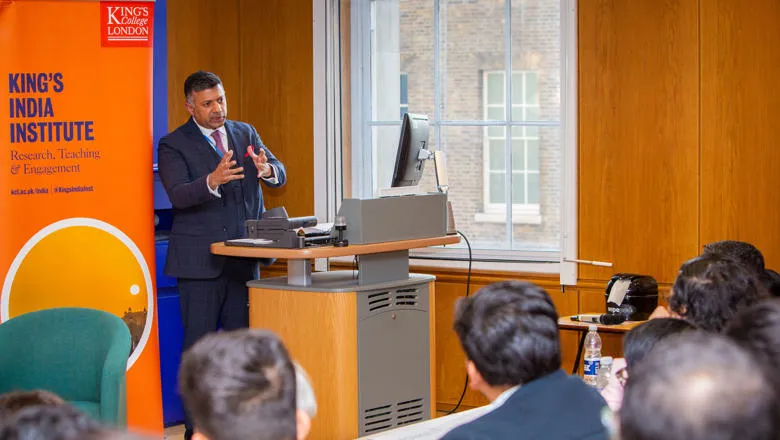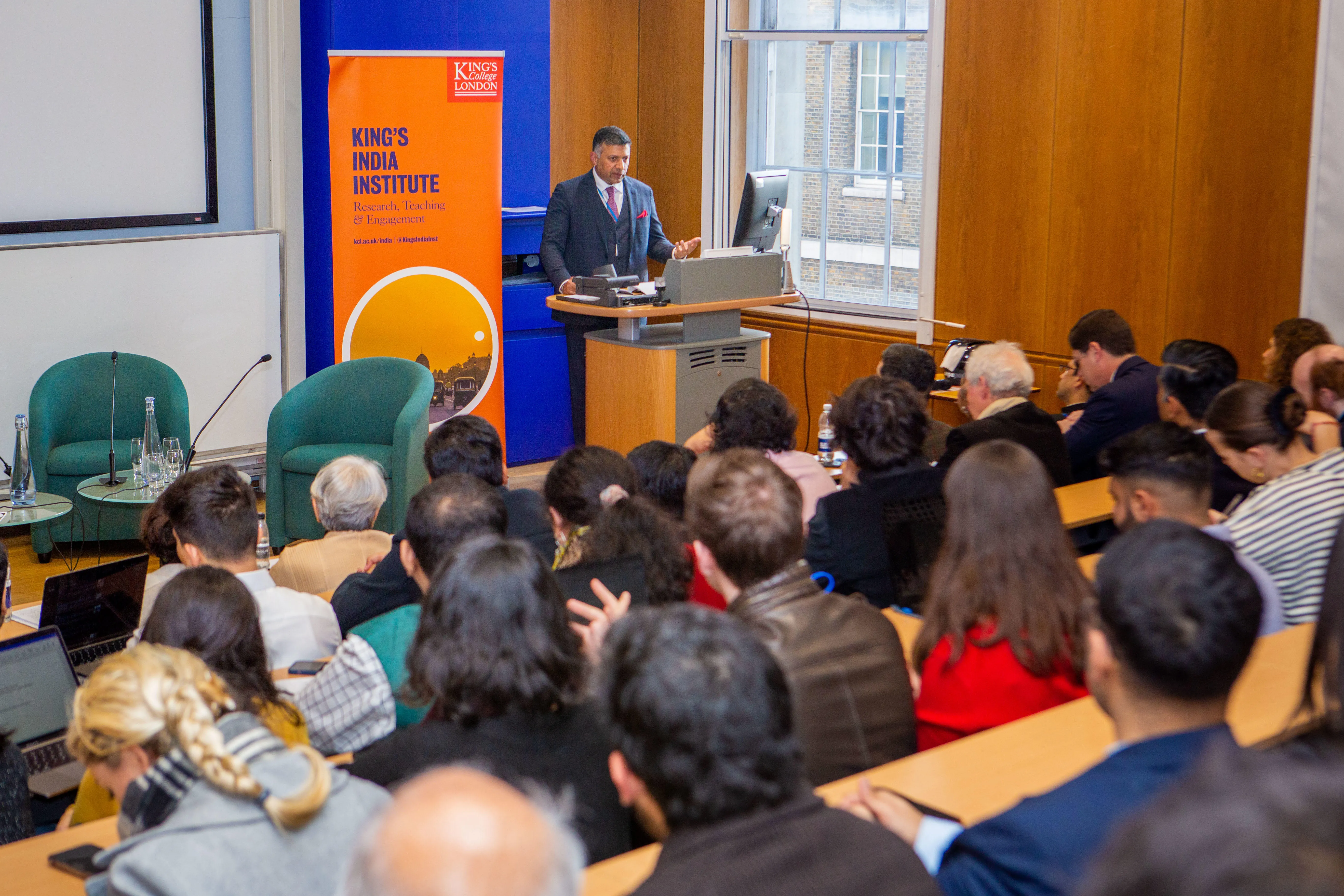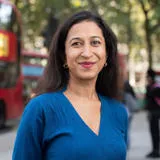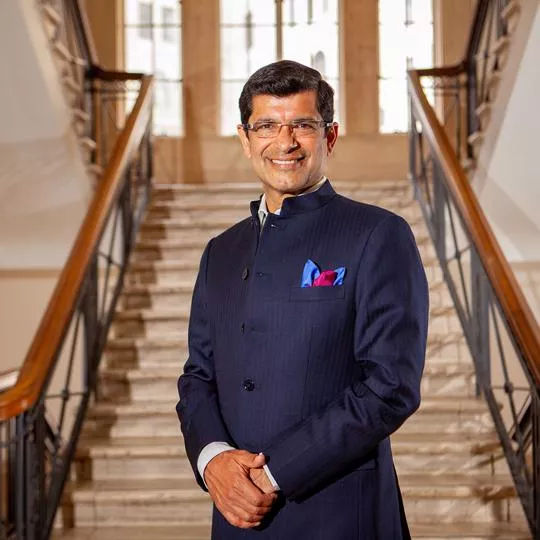The intention is to create as many options for partnerships, as many beneficial links to cooperation as possible. So that should the need arise, you have multiple options to fall back upon in terms of partnership.
India’s High Commissioner to the UK, Vikram Doraiswami
14 February 2023
India's foreign policy geared towards securing national interest and maximising opportunities
India’s High Commissioner to the UK, Vikram Doraiswami spoke about India’s foreign policy and trade relations, in a lecture hosted by King’s India Institute.

In a lecture hosted at King’s, India’s High Commissioner to the UK, Vikram Doraiswami said that India’s foreign policy and trade relations have always been guided by a strategy of maximising beneficial partnerships while balancing powers.
The lecture titled ‘India’s foreign policy and trade relations’ was hosted by the King’s India Institute in the backdrop of India holding the presidency of the G20 group of nations in 2023.
High Commissioner Doraiswami traced the trajectory of India’s foreign policy from 1947, when the country became independent, to the present, and said that India’s approach has always been underpinned by strategies of ‘balancing and hedging’.
He said that although these strategies have ‘metamorphosised’ based on circumstances of each decade, the fundamental principal has remained the same.
The High Commissioner emphasised that as part of this strategy, India has been building partnerships in Europe, Russia, Africa, Central Asia, Latin America and South-east Asia, to name a few.
He also said that the rise of two major powers in Asia – China and India – could pose new geopolitical challenges in the future, and in this context, India will have greater necessity to continue managing its relationships with different partners, bigger and smaller than itself.
The High Commissioner said: "We are clear in our own minds that given the complexities of India – the most multi-ethnic, multilingual and multi-religious country in the world – and given the complexities of our geostrategic location, we have an obvious interest in working first and foremost for a multipolar Asia.”
The lecture was introduced by Principal and President of King’s College London, Professor Shitij Kapur. He spoke about the university’s ties with India and how its research and teaching has contributed to expanding knowledge on India’s foreign policy and security strategies.
Following the High Commissioner’s lecture, Professor Louise Tillin, Director of the King’s India Institute, chaired a discussion with the speaker and panellists, Professors Walter Ladwig III and Kamini Gupta.
The event was hosted by King’s India Institute in conjunction with ‘Enablers and Obstacles for UK-India Trade: Banks and Diasporas’, a research project funded by the Economic & Social Research Council and Indian Council of Social Science Research. The project is led by Dr Sunil Mitra Kumar (King’s India Institute) and Dr Kamini Gupta (King’s Business School) in collaboration with Dr Prateek Gupta (IIM, Bangalore) and Dr Param Shah (FICCI, UK).





